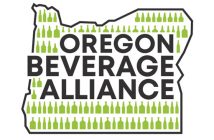This is the big data age and over the past two or three years, businesses in every sector have been wrestling with the question of how they can put the vast amounts of data that are collected every day to the most effective use. For a retailer or a service company, getting the best use out of big data can improve sales and reduce costs. But in the healthcare sector, there are bigger prizes at stake.
What are the healthcare goals for big data?
Healthcare practices vary enormously across the globe, but where big data is concerned, the world is united in its goals. These are threefold:
- Improving the patient experience in terms of overall satisfaction and quality of care.
- Improving the overall health of the population.
- Reducing the cost per capita of healthcare.
Gathering data and transforming it into information that can be used to deliver valuable insights used to be a manual task that was labor intensive, time consuming and costly. Today’s advances in data analytics have made it quicker, cheaper and more accurate. The innovations have also meant there is a whole new variety of health jobs available in non-clinical roles. Suddenly, that IT career becomes one in which you can really make a difference to the world and bring tangible benefits to the most vulnerable and needy members of the community.
Electronic Health Records (EHRs)
The best-known application for big data is in the use of EHRs. This is essentially the digitization of individual patient records, and is already well underway. By having a patient’s entire medical history, including details of past surgery, allergies, ongoing conditions and so on in one central repository, healthcare providers can deliver the best possible care and avoid duplication or the creation of conflicting data.
Clinical trials
A recent research paper discussed how big data can truly revolutionize clinical trials, saving lives by making new treatments and medicines available to patients in a far shorter time.
As things stand, the medical profession relies on randomized trials to assess the effectiveness of new practices or drugs. Not only is this time consuming, it has also led to some tragic consequences when patients suffered unexpected side effects.
Data analytics can use routinely collected data to bypass the more time-consuming stages of the trials. This ticks all the boxes in improving the patient experience, reducing costs and enhancing the overall wellbeing of the community by bringing solutions to market faster.
Looking to the future
With every passing week, the technology advances and the data being collected and analysed increases. Mobile apps, wearable trackers and monitors, even tiny sensors that can be implanted under the skin are providing a vast and growing library of medical information. And machine learning is advancing at the same time, so that it can deliver even better insights.
Not only will this help healthcare providers to deliver the best possible personalized care to patients, it will also improve understanding of all medical conditions, leading to advances in diagnosis and treatment.




